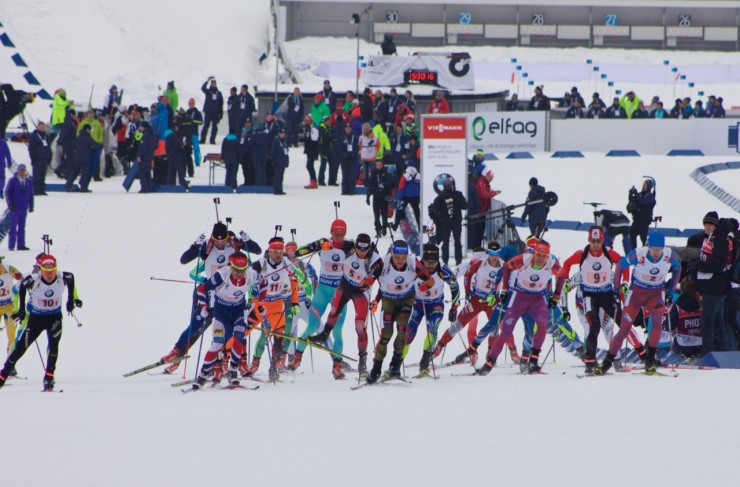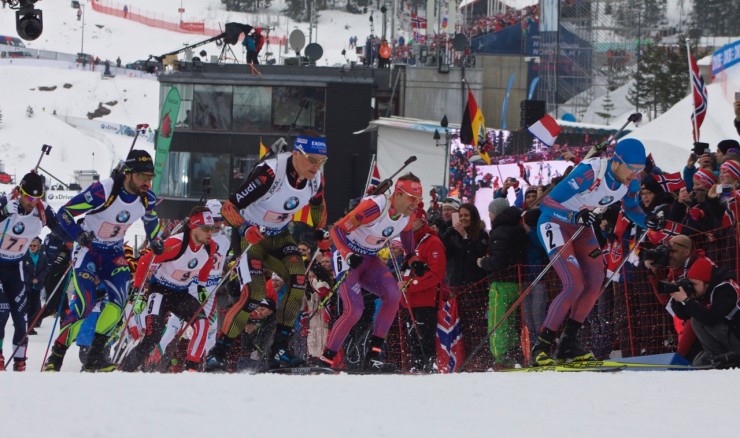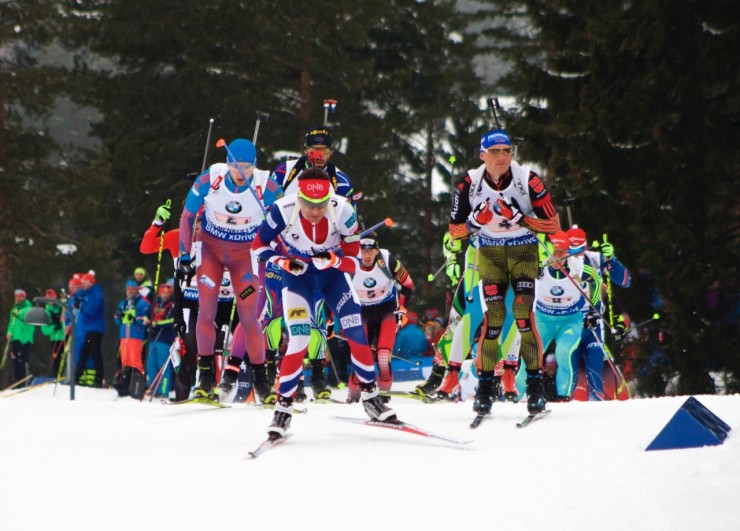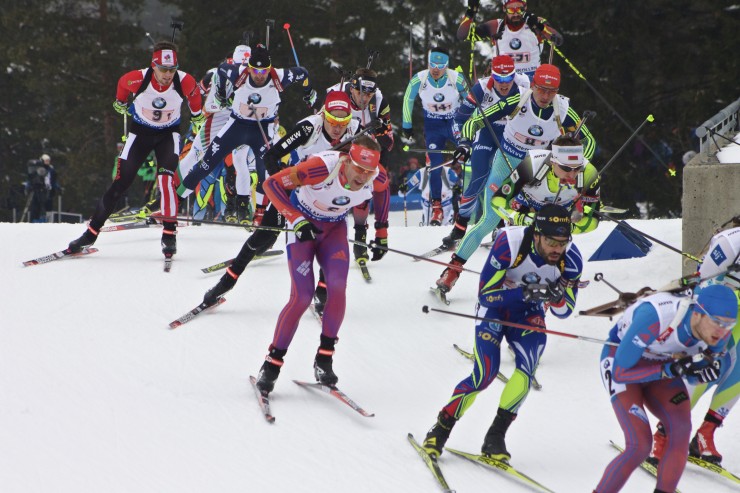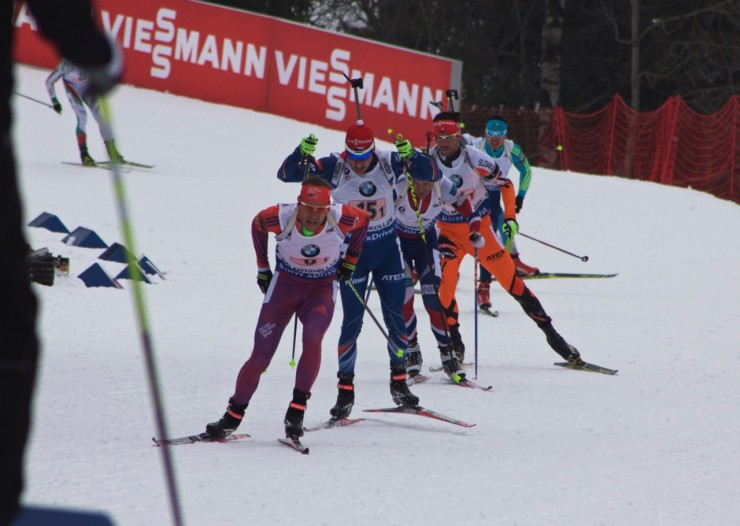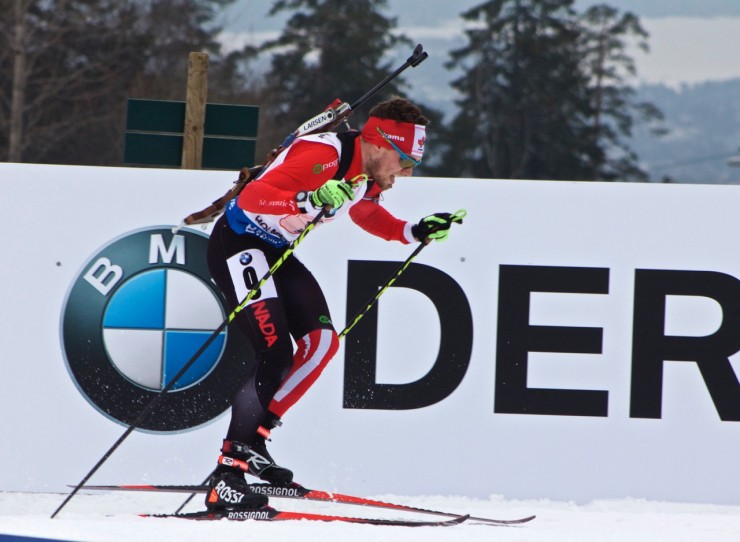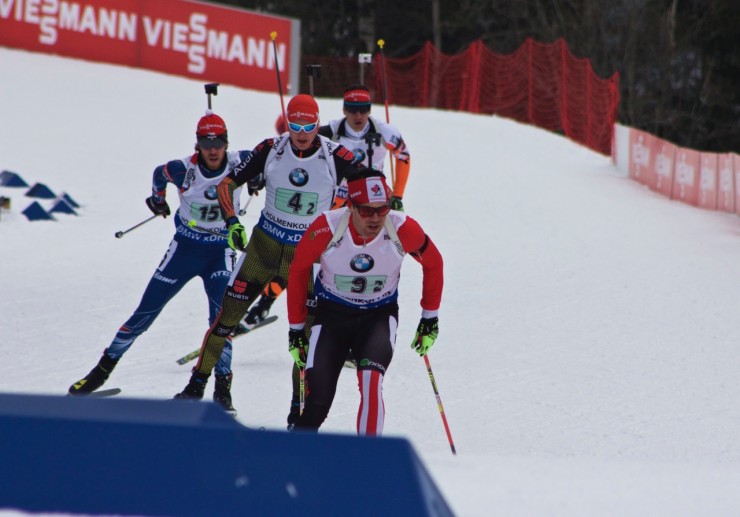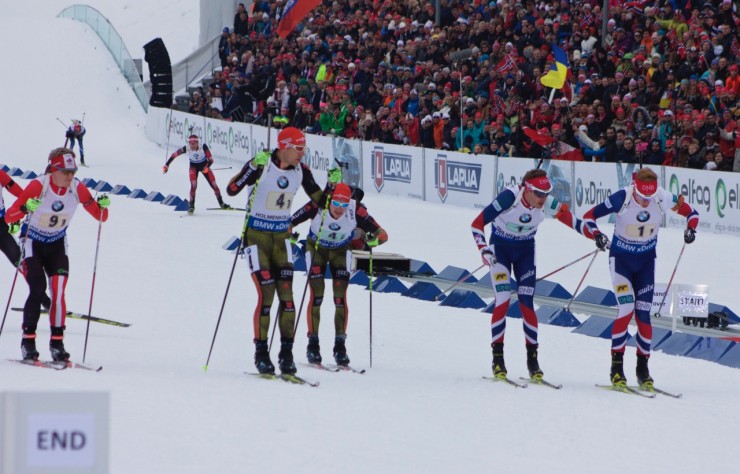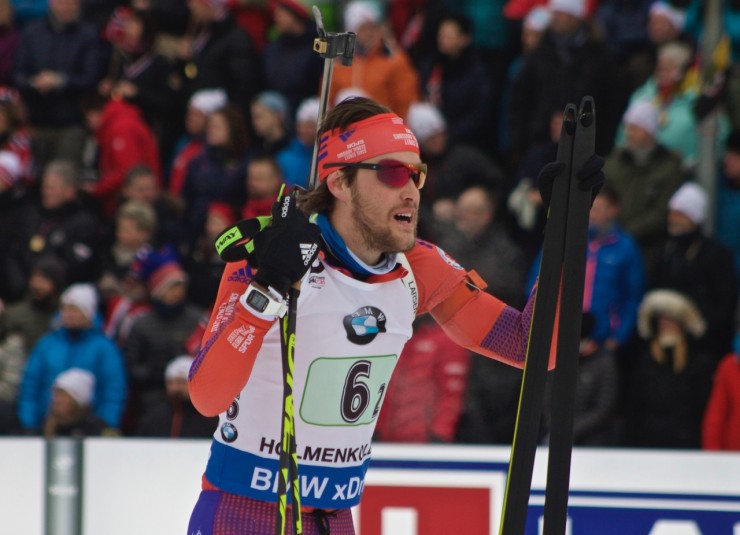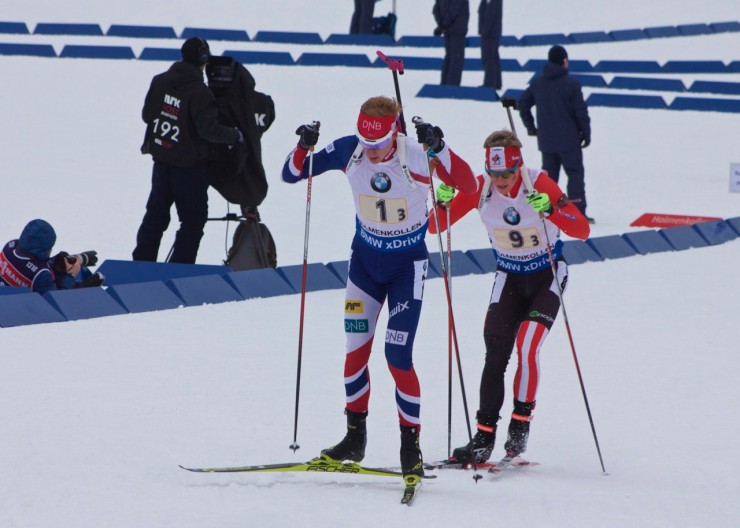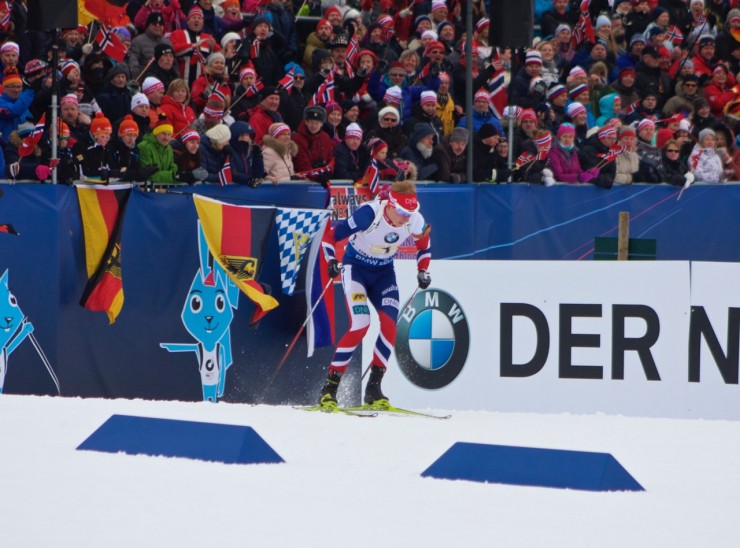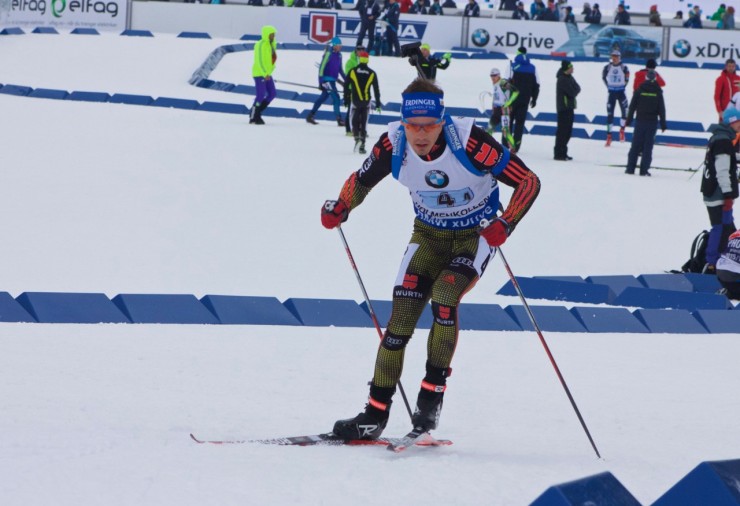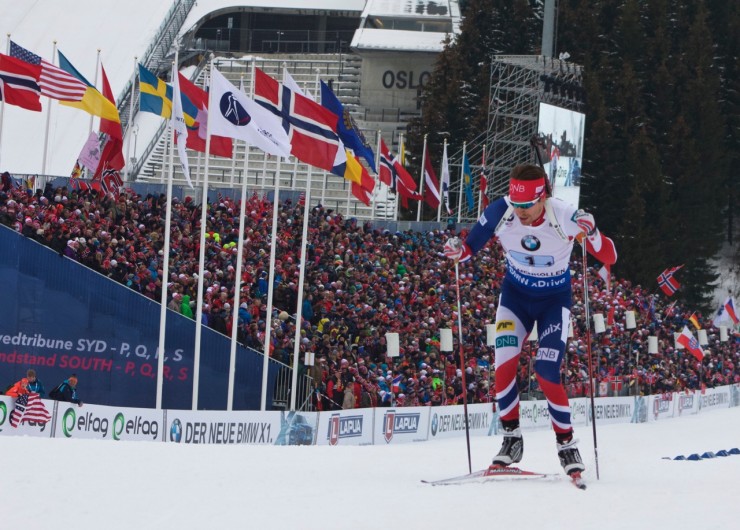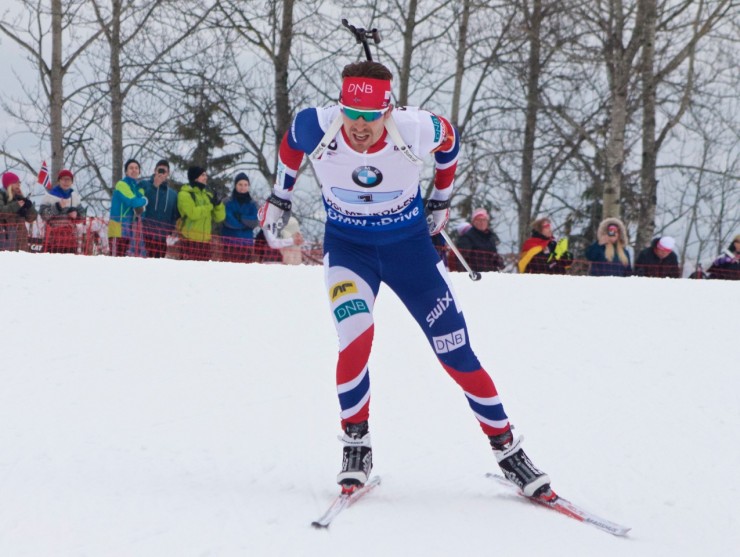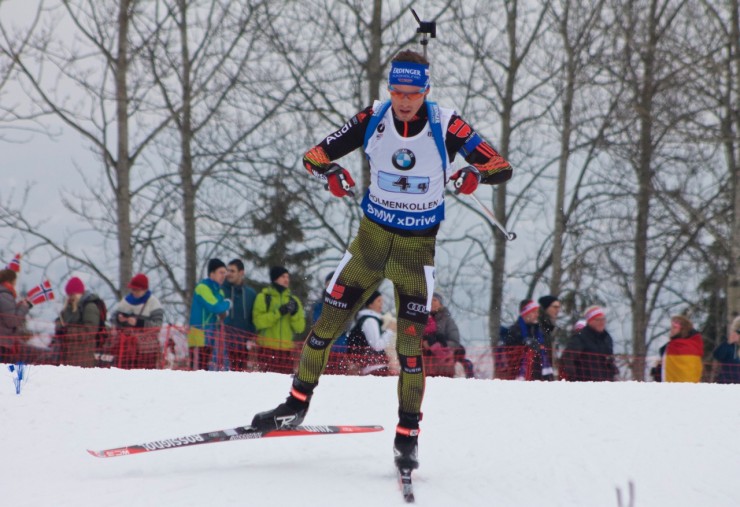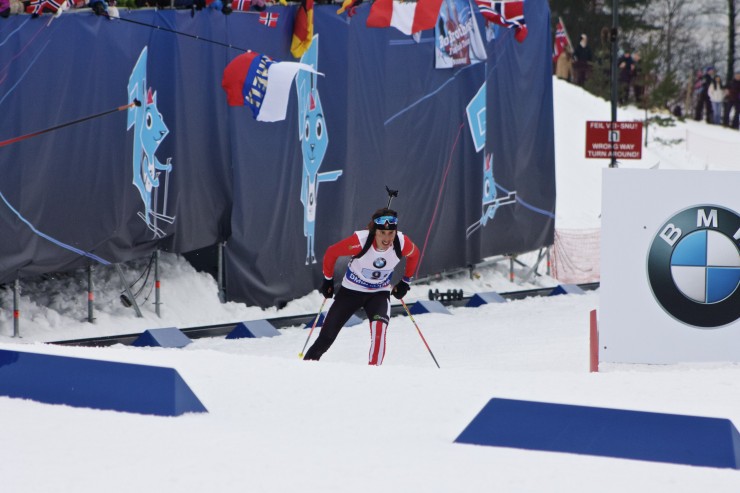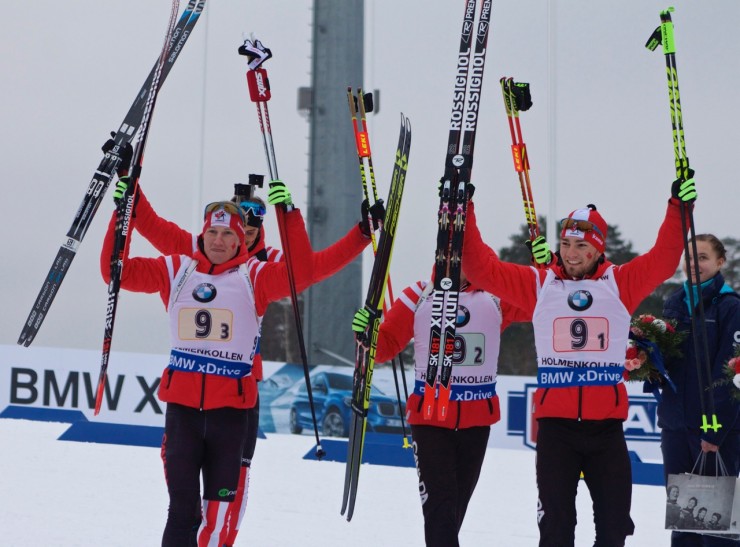OSLO, Norway—With one of their best shooting days, the U.S. men’s biathlon team finished eighth in the World Championships relay, 1:27.3 behind host country Norway.
The squad of Lowell Bailey, Leif Nordgren, Tim Burke, and Sean Doherty used just five spare rounds, tying them for the best shooting in the field with second-place Germany and third-place Canada.
(It was a historic day for the Canadians, who had never before won a relay medal.)
“I was really focusing on the shooting, because that’s really where you make it or break it today,” Bailey said.
He led things off with a fast and clean leg, avoiding a nasty crash in the opening loop that knocked Russia out of contention; several other athletes broke poles.
“I went a good sprint out of the start in the first few hundred meters to get up near the front, and then I just stayed in control in second place there trying to catch the draft and conserve energy,” Bailey said. “I let a few guys go by me, just to make sure I was staying in control.”
After using a spare in standing, Bailey turned in one of the fastest last loops of the field to ski up into second place by the time he tagged.
“I was able to save a little bit for the last lap,” he said. “It’s so loud. I think it’s the loudest crowd I’d ever heard. It’s such an incredible feeling racing in front of that many people.”
From there Nordgren took over, and started off well, but on the second loop began flagging on his skis.
“It was unfortunately not the greatest ski day for me,” he said. “Kind of like a lot of the races have gone for me this year. I tried to hang with them right off the bat, and the first loop was fine. It was no problem. But then I had not a lot of gas left for the last two loops. That’s what I had for today I guess.”
Burke was able to pull the team back from eleventh, where he received the tag, to seventh. He was one of several athletes trying to make up ground for their teams.
“I had a great group the first loop with [Benjamin] Weger from Switzerland and [Anton] Babikov from Russia, and we really went for it,” Burke said. “The three of us actually were together pretty much the whole race, cause we all I think used one extra, Babikov used two in prone and we all cleaned standing, so we left together on the last loop. We made up quite a bit of time.”
Sean Doherty anchored the relay and actually gained time on the leaders, but slipped from seventh to eighth.
“My race was awesome,” he said. “I had only one spare. I felt great skiing. I had a really solid leg. Just around some other fast teams, and they kind of passed me in the end, I couldn’t do anything more than I already had. But I am really happy. And with only five spares, this is an amazing performance for the team.”
The team was left scratching their heads as to why they didn’t have a better finish, considering their strong shooting. And looking at the Canadians – a team they know well – they couldn’t help but wonder: with the same five spare rounds, why couldn’t they be closer to the podium?
One reason might just be that with World Championships in Oslo, teams and athletes were even more focused on having top performances and many are hitting their peaks at just the right time.
“It is surprising that we only managed to finish eighth,” Doherty said. “We will look at the numbers later, and see kind of where that time came from. But we are only a minute and a half back, so that’s really just a close competitive day. Which is kind of what you’d expect here.”
“With that we really should fight for the podium,” Burke agreed. “Normally with our team’s ski speed, zero plus five would be there. I don’t know what happened.”
Chelsea Little
Chelsea Little is FasterSkier's Editor-At-Large. A former racer at Ford Sayre, Dartmouth College and the Craftsbury Green Racing Project, she is a PhD candidate in aquatic ecology in the @Altermatt_lab at Eawag, the Swiss Federal Institute of Aquatic Science and Technology in Zurich, Switzerland. You can follow her on twitter @ChelskiLittle.

